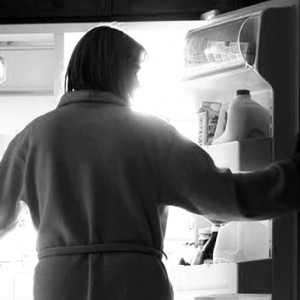How often do you use plastic? If you start to note it down – it can become a little overwhelming.
Those apples you bought in the supermarket, which you packed into a plastic bag, that tray of meat, which was also neatly packed in plastic, your individual tubs of yoghurt and that receipt they gave to you once you purchased your groceries. And we haven’t begun with the remaining groceries and ensuing plastic bags required to feed a family and transport said items home.
Plastic has been such an integral part of our lives for well over 100 years and its usage seems to be doubling by the minute. In the US alone, 107 BILLION pounds of plastic were produced last year.
Lately we’ve been hearing a lot of claims regarding the safety of certain plastics.
Which begs the question, are we getting more than we ‘stored’ for when using plastic?
Of particular prominence is BPA – a chemical found in most plastics and additives. Think waters bottles, CD’s, bottle tops, canned products and several forms of Tupperware.
How DOES BPA GET IN MY BODY?
Our primary exposure to BPA is via packaged foods and our toxicity levels of BPA are more widespread than you think. In 2004 the Centre for Disease Control and Prevention found BPA present in 93% of over 2500 urine samples from people aged 6 years or older!
BPA enters our system when plastics are scratched, old or the biggest one HEATED!
Note to self: STOP MICROWAVING YOUR LEFTOVERS IN PLASTIC!
While it is all very well to show that we are able to retain BPA in our system it is the recent uproar in the science community as to BPA’s affects on our hormones and metabolism, particularly on pregnant women and infants, that has many people questioning there use.
PLASTIC AFFECTS YOUR HORMONES and BODY FAT?
Compounds in plastic have been shown to cause estrogenic activity (EA). EA chemicals have a habit of copying or aggravating our own natural estrogen. When this happens, it fools our body into thinking we either have too much or not enough estrogen. This can cause an array of problems, we hear so often about today. Think PCOS, obesity, reduced sperm counts, early puberty, cancers and developmental delays. Now I don’t know about you but I am pretty sure I never hear Jane Austen’s Emma wax lyrical about the plight of PCOS.
Despite many a conscious shoppers decision to only use BPA Free plastic – even BPA can aggravate estrogenic activity. In fact in March 2011 the Environmental Health Perspective managed to demonstrate that even BPA free plastic still leached estrogenic chemicals and in some cases, even more than the BPA counterpart!
This moves the need from removing only BPA to removing ALL forms of plastic.
So if I want to reduce my exposure to estrogenic plastics, what do I do?
In truth, due to the very complex nature of plastics and the sheer array of types it is hard to determine which ones are safe vs. which ones aren’t. Moreover industrial chemicals are EVERYWHERE and unless you’re the bubble boy, outright avoidance is nigh impossible
But IF you do want to make a difference try implementing these simple measures and see how easy it is to live a life less plastic:
– Make sure plastic doesn’t come into contact with your food
– Embrace Pyrex, glass jars and containers for food storage. My recent penchant for storing food in jam jars is becoming so eco chic.
– Try to use non-toxic chemicals when cleaning. My favourite is a cup of vinegar, a teaspoon of lavender oil and some water filled into a spray bottle.
– Stainless steel water bottles are a must. They are non-toxic and lets be honest…look cool.
– Stop buying your food wrapped in plastic. Go to the butcher where your meat can be wrapped in butchers paper and try to limit your consumption of individually portioned food items which just wreak of waste! (Hello yoghurt tubs and muesli bars)
And should you think that the argument for plastics interrupting hormonal patterns is flawed, there is good reason for reducing plastic consumption from an environmental perspective. So whether I am appealing to your inner health nerd or inner environmental geek either way there is a case in point for ridding PLASTICS from your recommended daily intake.





